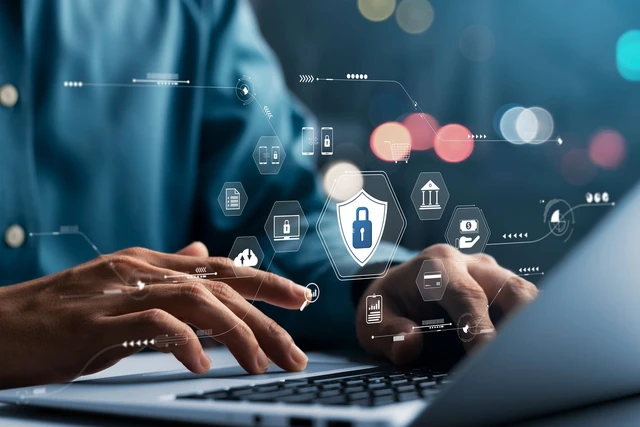Ensuring Compliance and Security in Enterprise Events
In this blog, we will explore the critical role of compliance and security in enterprise events. As the events industry becomes increasingly complex and data-driven, adhering to regulations like GDPR, CCPA, and HIPAA, while implementing robust security protocols, is essential for protecting sensitive data, maintaining trust, and ensuring event success.

In today’s fast-paced digital environment, enterprise events play a critical role in engaging stakeholders, building brand loyalty, and driving business growth. However, as these events become more complex and data-driven, the need for stringent compliance with industry regulations and robust security measures has never been more critical. Ensuring compliance and security within enterprise event management is not just a legal obligation; it is essential for protecting sensitive data, maintaining trust, and guaranteeing the success of an event. This article explores the importance of compliance and security in enterprise events and provides insights into best practices for implementing these measures.
The Rising Importance of Compliance in Enterprise Events
Compliance with industry regulations is a fundamental aspect of managing enterprise events. Organizations must adhere to various legal requirements, industry standards, and internal policies to avoid penalties, safeguard their reputation, and ensure the smooth execution of events. Failure to comply with these regulations can lead to severe consequences, including legal actions, financial losses, and damage to the organization's reputation.
Enterprise events often involve collecting and processing personal data from attendees, including names, contact details, payment information, and in some cases, even sensitive health data. This makes compliance with data protection regulations, such as the General Data Protection Regulation (GDPR) in the European Union or the California Consumer Privacy Act (CCPA) in the United States, a top priority for event organizers.
Understanding Key Compliance Regulations
Different industries have specific regulations that govern how events should be managed. Understanding and adhering to these regulations is crucial for the success of any enterprise event.
General Data Protection Regulation (GDPR): GDPR is one of the most stringent data protection regulations globally, and it applies to any organization that processes the personal data of EU citizens, regardless of the organization’s location. For enterprise events, GDPR compliance involves obtaining explicit consent from attendees before collecting their data, ensuring data is stored securely, and providing attendees with the right to access and delete their data.
California Consumer Privacy Act (CCPA): The CCPA provides California residents with greater control over their personal data. It requires businesses to inform consumers about the data being collected and how it will be used, provide an opt-out option for data sales, and ensure that data is protected from unauthorized access.
Health Insurance Portability and Accountability Act (HIPAA): For events involving healthcare professionals or patients, HIPAA compliance is essential. HIPAA mandates strict guidelines for the protection of health information, including how it is stored, shared, and accessed during events.
Payment Card Industry Data Security Standard (PCI DSS): If an enterprise event involves processing payments, PCI DSS compliance is necessary. This standard ensures that payment card information is handled securely, reducing the risk of data breaches.
The Role of Enterprise Event Management Software in Compliance Enterprise event management software is a powerful tool for ensuring compliance with industry regulations. These platforms are designed to handle the complexities of event planning, including data management, attendee tracking, and reporting, while adhering to regulatory requirements.
Automated Consent Management: One of the key features of enterprise event management software is the ability to automate the process of obtaining and managing attendee consent. This ensures that organizations can easily track who has provided consent and manage requests for data access or deletion, helping to maintain compliance with GDPR and similar regulations.
Data Encryption and Secure Storage: Compliance regulations often require that personal data be encrypted and stored securely. Enterprise event management software provides robust encryption and secure storage solutions, protecting sensitive data from unauthorized access.
Audit Trails and Reporting: To demonstrate compliance, organizations must maintain detailed records of how data is collected, stored, and used. Event management software provides audit trails and comprehensive reporting features, allowing organizations to generate reports that demonstrate compliance with regulatory requirements.
Integrations with Compliance Tools: Many enterprise event management platforms offer integrations with compliance management tools, making it easier to monitor and enforce compliance across the event lifecycle. These integrations can include tools for managing data privacy, monitoring data access, and ensuring that all aspects of the event adhere to industry regulations.
Implementing Robust Security Protocols for Enterprise Events
In addition to compliance, the security of enterprise events is paramount. Events often involve the sharing of sensitive information, whether it’s business strategies, proprietary technologies, or personal data from attendees. Implementing robust security protocols is essential to protect this information from cyber threats, data breaches, and unauthorized access.
Understanding the Threat Landscape
The threat landscape for enterprise events is constantly evolving. Cybercriminals are becoming increasingly sophisticated, using advanced techniques to target events and exploit vulnerabilities in event management systems. Some of the common threats include:
Phishing Attacks: Cybercriminals may use phishing attacks to trick attendees into revealing sensitive information, such as login credentials or payment details. These attacks often come in the form of fraudulent emails or fake event websites that appear legitimate.
Data Breaches: Data breaches occur when unauthorized individuals gain access to sensitive data stored within event management systems. This can result in the theft of personal information, payment details, or proprietary business information.
Ransomware: Ransomware attacks involve malicious software that encrypts event data, rendering it inaccessible until a ransom is paid. These attacks can disrupt the planning and execution of events, leading to significant financial and reputational damage.
Insider Threats: Insider threats come from individuals within the organization who have authorized access to event data but misuse it for personal gain or malicious purposes.
Best Practices for Securing Enterprise Events
To mitigate these risks and ensure the security of enterprise events, organizations must implement a multi-layered security approach that includes both technical and organizational measures. Secure Event Registration and Payment Processes: The event registration and payment processes are prime targets for cybercriminals. Organizations should use secure, PCI DSS-compliant payment gateways and implement multi-factor authentication (MFA) for accessing event platforms. Additionally, it’s essential to educate attendees on recognizing phishing attempts and encourage them to report suspicious activity.
Data Encryption: All data transmitted during the event, whether it’s registration information, communications, or financial transactions, should be encrypted. This ensures that even if data is intercepted, it cannot be read or used by unauthorized individuals.
Access Controls: Implementing strict access controls is critical for preventing unauthorized access to event data. This includes role-based access controls (RBAC), which restricts access to sensitive information based on an individual’s role within the organization or event team.
Regular Security Audits and Vulnerability Assessments: Security audits and vulnerability assessments help organizations identify potential weaknesses in their event management systems. These assessments should be conducted by qualified security professionals and should cover all aspects of the event, from registration to post-event data storage.
Incident Response Plan: Despite the best efforts, security incidents can still occur. Having a robust incident response plan in place ensures that the organization can quickly and effectively respond to security breaches, minimizing the impact on the event and its attendees. This plan should include steps for identifying and containing the breach, notifying affected individuals, and reporting the incident to relevant authorities.
Training and Awareness: Human error is one of the leading causes of security breaches. Providing regular training and raising awareness among event staff and attendees about security best practices can significantly reduce the risk of incidents. This training should cover topics such as recognizing phishing attempts, securing personal devices, and safeguarding sensitive information.
The Role of Third-Party Vendors in Event Security
Many enterprise events involve third-party vendors, such as caterers, AV companies, and technology providers. While these vendors play a crucial role in the success of the event, they can also introduce security risks if not properly managed.
Vendor Due Diligence: Organizations should conduct thorough due diligence on all third-party vendors before engaging them for an event. This includes reviewing their security policies, assessing their compliance with industry regulations, and ensuring they have the necessary certifications.
Contractual Security Requirements: When working with third-party vendors, it’s important to include specific security requirements in the contract. These requirements should outline the vendor’s responsibilities for protecting event data, reporting security incidents, and complying with relevant regulations.
Vendor Monitoring: Even after a vendor has been engaged, organizations should continuously monitor their activities to ensure compliance with security and compliance standards. This can include conducting regular security audits, reviewing access logs, and monitoring for any unusual activity. The Future of Compliance and Security in Enterprise Events As technology continues to evolve, so too will the compliance and security challenges facing enterprise events. The rise of artificial intelligence (AI), machine learning, and the Internet of Things (IoT) will introduce new risks and opportunities for event management.
AI and Machine Learning for Security: AI and machine learning technologies have the potential to revolutionize event security. These technologies can be used to detect and respond to threats in real-time, automate compliance monitoring, and provide predictive insights into potential security risks. IoT and Connected Devices: The increasing use of IoT devices in events, such as smart badges, connected cameras, and interactive displays, will create new security challenges. Organizations will need to implement robust security measures to protect these devices from being compromised. Blockchain for Data Integrity: Blockchain technology offers a promising solution for ensuring the integrity and security of event data. By creating a decentralized and tamper-proof record of transactions, blockchain can help prevent data breaches and ensure compliance with data protection regulations.
Ensuring compliance and security in enterprise events is a complex but essential task. As the digital landscape continues to evolve, organizations must remain vigilant in their efforts to protect sensitive data, comply with industry regulations, and mitigate security risks. By leveraging enterprise event management software, implementing best practices for security, and staying informed about emerging technologies, organizations can create secure, compliant, and successful events that meet the needs of their stakeholders and protect their brand reputation.
More Event Analytics










